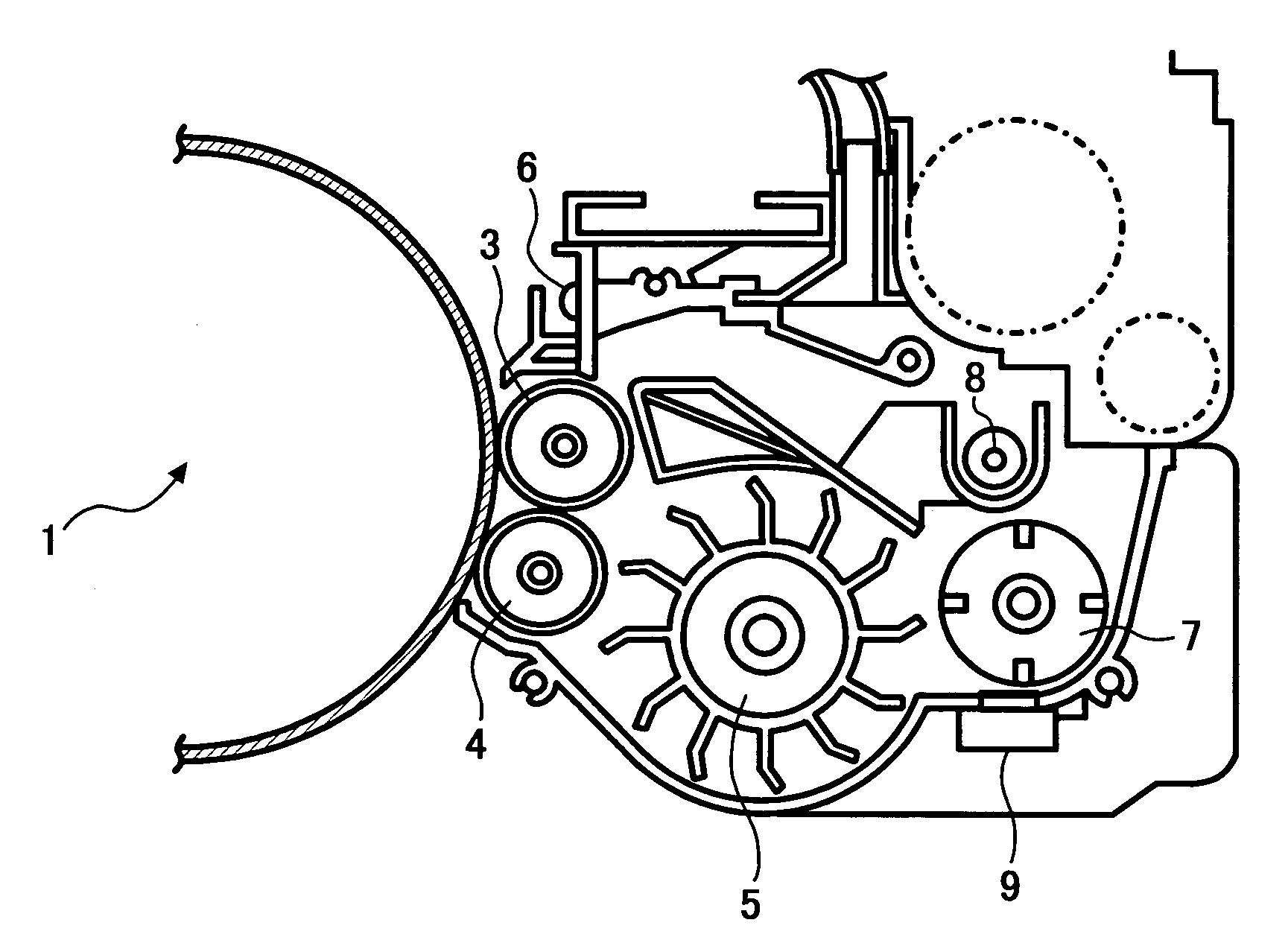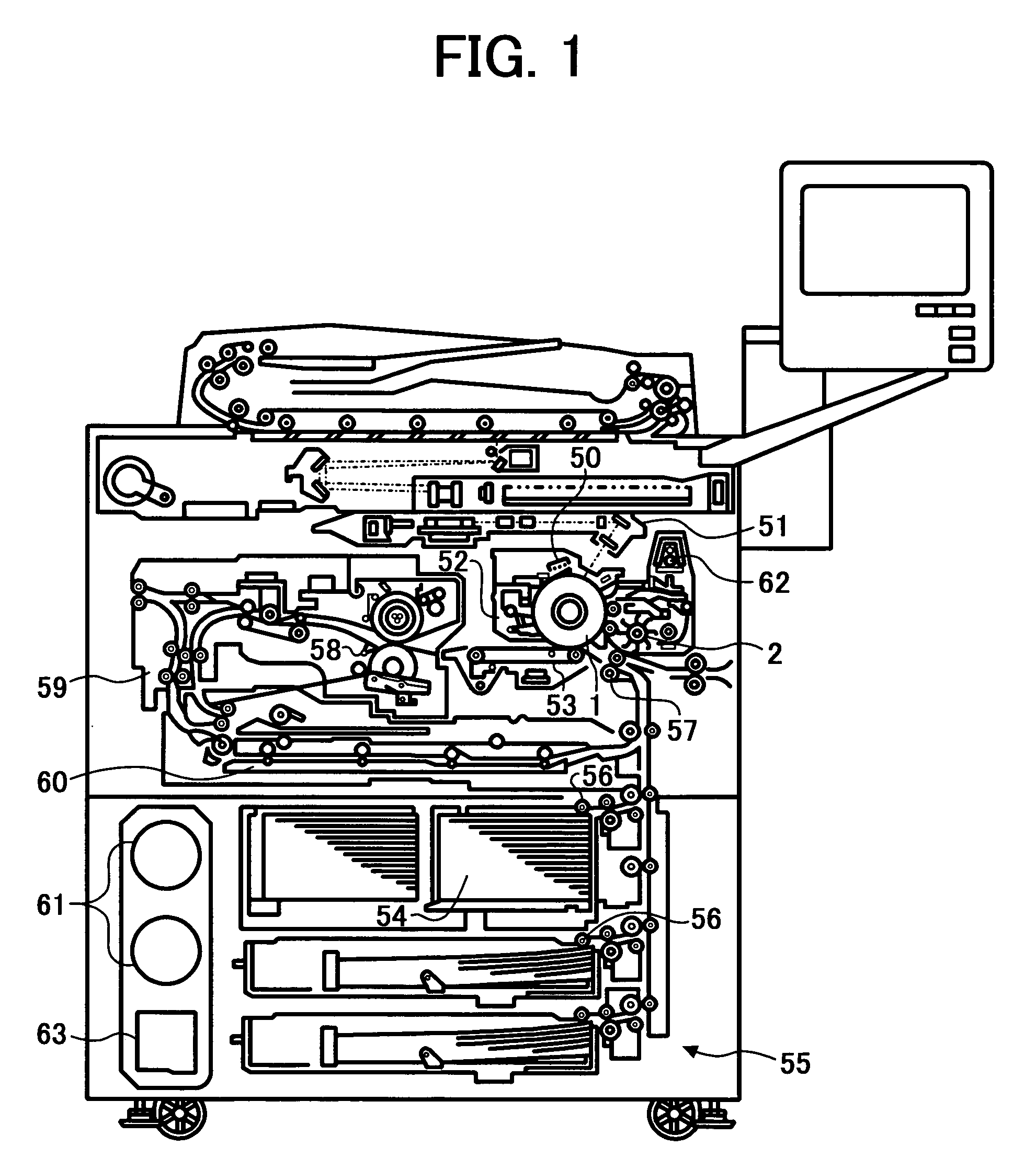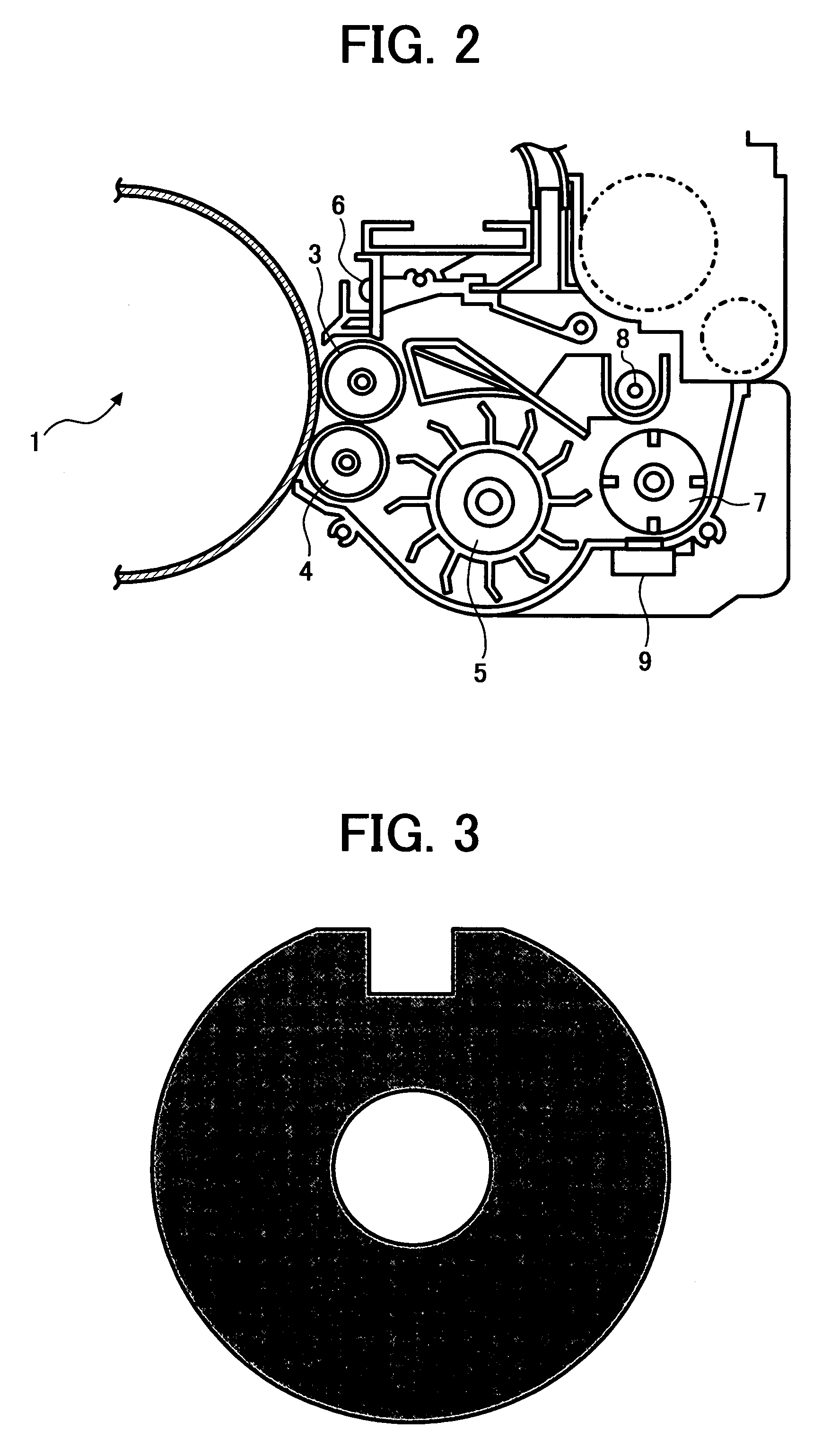Development magnet roller, development device, process cartridge and image forming apparatus
a development magnet roller and development device technology, applied in the field of electrophotography image forming apparatus, can solve the problems of adverse effects on the transfer device, adverse effects on the fixing device, carrier adhesion is a factor decreasing the reliability of the image forming apparatus, etc., to suppress the carrier adhesion, improve the trailing edge omission, and reduce the effect of surface magnetic for
- Summary
- Abstract
- Description
- Claims
- Application Information
AI Technical Summary
Benefits of technology
Problems solved by technology
Method used
Image
Examples
Embodiment Construction
[0026]Referring now to the drawings, wherein like reference numerals designate identical or corresponding parts throughout the several views, preferred embodiment of the present invention are described.
[0027]In a two-component development device, the magnetic waveform of a development pole of a development roller has been examined to improve carrier adhesion and trailing edge omission phenomena. First, the peak magnetic flux density (maximum magnetic force in a magnetic force distribution curve in the normal line direction) of the development pole has been examined, and it has been found that higher the peak magnetic flux density is, it is more advantageous for improving carrier adhesion. It is believed that as the peak magnetic flux density of a development pole is higher, the magnetic force in a development area is higher, so that carrier adhesion is hard to occur.
[0028]Next, the zero gauss region width (angle width at parts of a magnetic force distribution curve in the normal lin...
PUM
| Property | Measurement | Unit |
|---|---|---|
| magnetic flux density | aaaaa | aaaaa |
| magnetic flux density distribution | aaaaa | aaaaa |
| magnetic flux density | aaaaa | aaaaa |
Abstract
Description
Claims
Application Information
 Login to View More
Login to View More - R&D
- Intellectual Property
- Life Sciences
- Materials
- Tech Scout
- Unparalleled Data Quality
- Higher Quality Content
- 60% Fewer Hallucinations
Browse by: Latest US Patents, China's latest patents, Technical Efficacy Thesaurus, Application Domain, Technology Topic, Popular Technical Reports.
© 2025 PatSnap. All rights reserved.Legal|Privacy policy|Modern Slavery Act Transparency Statement|Sitemap|About US| Contact US: help@patsnap.com



